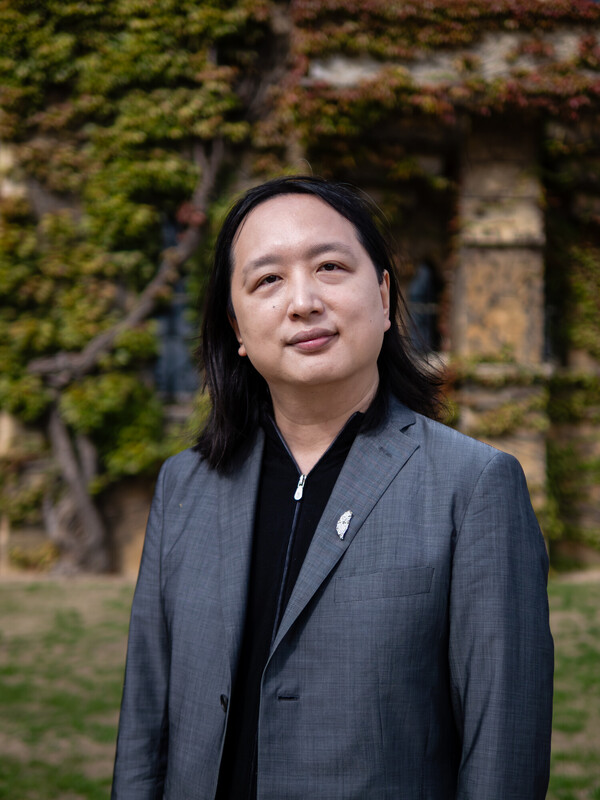
Audrey Tang
Taiwan
Geburtsort: Taipeh, Taiwan
Geburtsdatum: 18. April 1981
X: @audreyt
Instagram: @digitalminister.one
Facebook: @audreyt
Melden Sie sich gern für Interviewanfragen und weitere Informationen.
Awarded
Audrey Tang
„Für den visionären Einsatz digitaler Technologien zur Stärkung der Demokratie, Einbindung der Zivilgesellschaft und Überwindung gesellschaftlicher Spaltung.“
Audrey Tang nutzt als sogenannte Civic-Hackerin digitale Technologien im Sinne des Gemeinwohls. Als Cyber-Botschafterin Taiwans und erste Digitalministerin ihres Landes zeigt sie, wie Spitzentechnologie das Vertrauen in die Demokratie stärkt, indem sie Millionen von Menschen ermöglicht, sich unmittelbar an der Gestaltung von politischen Prozessen zu beteiligen. Nachdem Tang diesen Ansatz in Taiwan erfolgreich erprobt hat, vermittelt sie diesen mittlerweile weltweit. Mit Transparenz und Mitgestaltung begegnet sie gesellschaftlichen Spaltungen und belebt damit Demokratie neu.
Ursprünglich aus der Open-Source-Bewegung Taiwans kommend, hat Tang gemeinsam mit der g0v-Community – ein selbstorganisiertes Civic-Tech-Kollektiv, das Tools für staatliche Transparenz entwickelt – Regierungshandeln als kollaboratives System neu gedacht. Dies prägte die Sunflower-Bewegung 2014 mit, die Bürger*innen und Abgeordnete in Echtzeit vernetzte. Daraus entstand vTaiwan, ein Partizipationsprozess, der digitale Werkzeuge nutzt, um über Meinungsverschiedenheiten hinweg Gemeinsamkeiten sichtbar zu machen. Als Digitalministerin erklärte sie den Zugang zu Breitband-Internet zum Menschenrecht, schuf in der Corona-Pandemie „Mask Map“ und organisierte Hackathons gegen Desinformationen und Deepfakes. Inzwischen arbeitet Tang zusammen mit Regierungen, zivilgesellschaftlichen Gruppen und Tech-Plattformen, um Menschen zu befähigen, ihre Zukunft selbst mitzugestalten. In Asien, Europa und den USA werden ihre Methoden adaptiert. Sie ist Vordenkerin für gemeinwohlorientierte KI-Nutzung, ob in ihrer Arbeit am Oxford Institute for Ethics in AI oder im Rahmen von Sicherheits-Kooperationen mit globalen Plattformen. „Die Superintelligenz, nach der wir suchen, ist längst da. Wir alle sind sie“, sagt sie.
When we see the internet of things, let’s make it the internet of beings … When we see machine learning, let’s make it collaborative learning … Whenever we hear the singularity is near, let’s remember the plurality is here.
Audrey Tang
Biographie (auf Englisch)
From civic hacker to Taiwan’s cyber ambassador and first digital minister, Tang has carried grassroots values of openness into institutions worldwide.
Tang’s work proves that technology, when steered with ethics and citizen participation, can turn fragmentation into trust and help democracies renew themselves from the ground up.
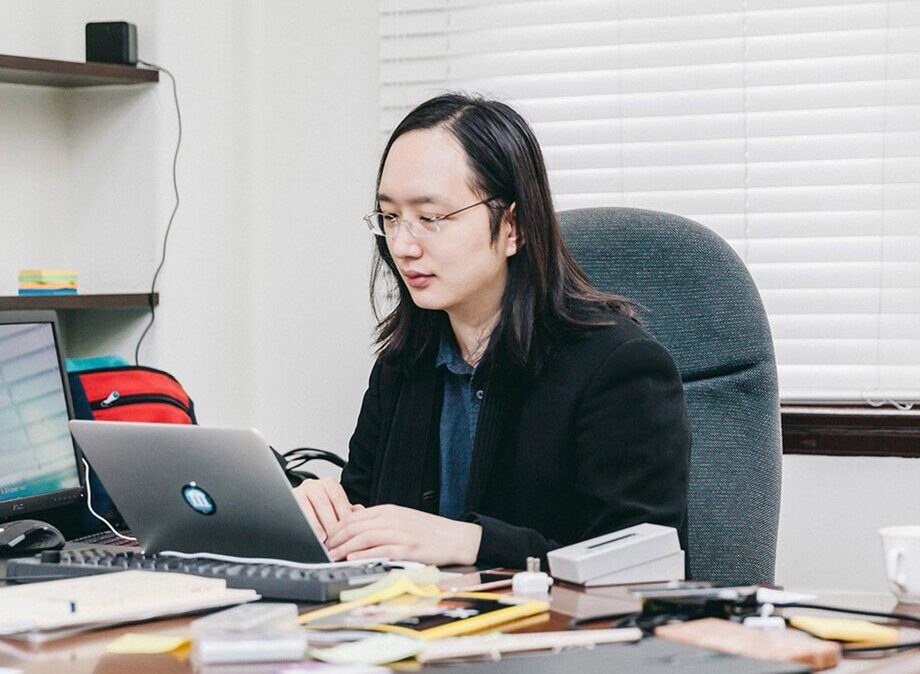
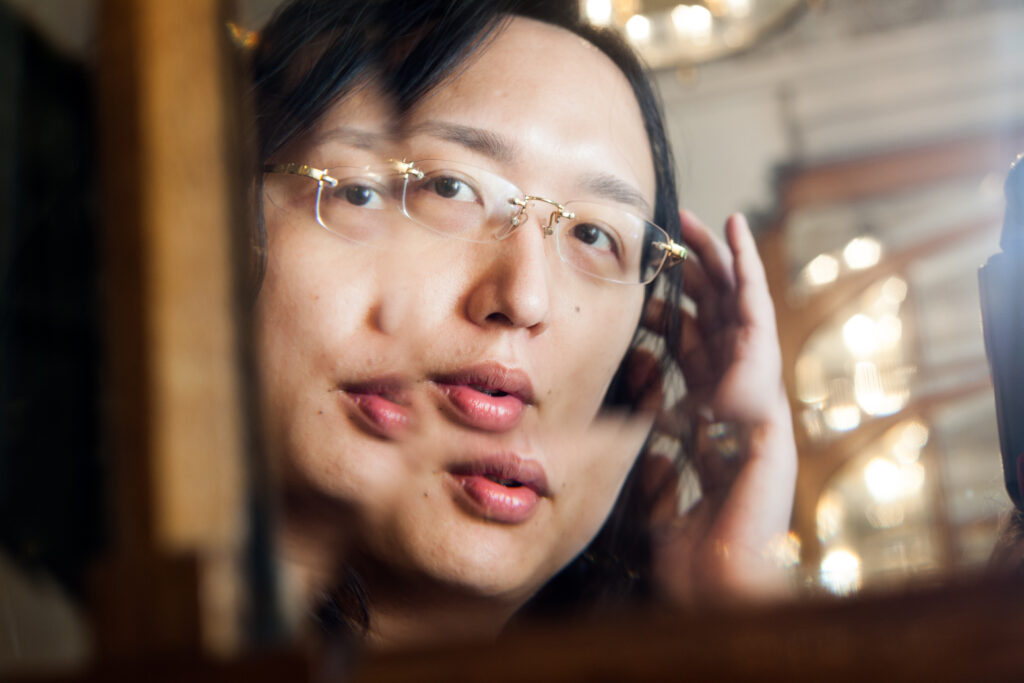
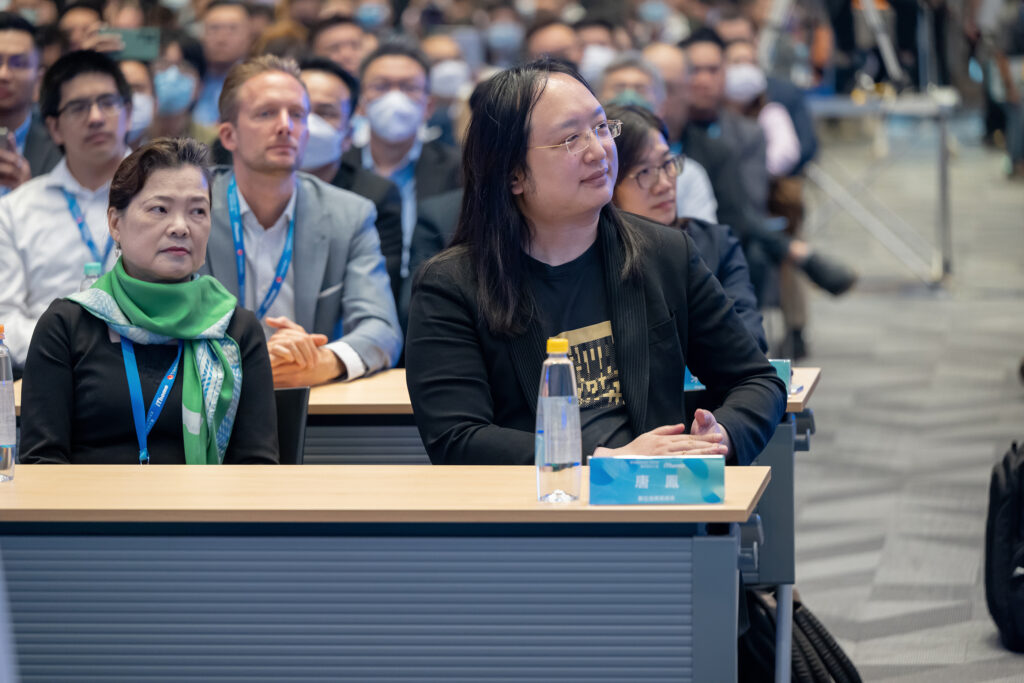
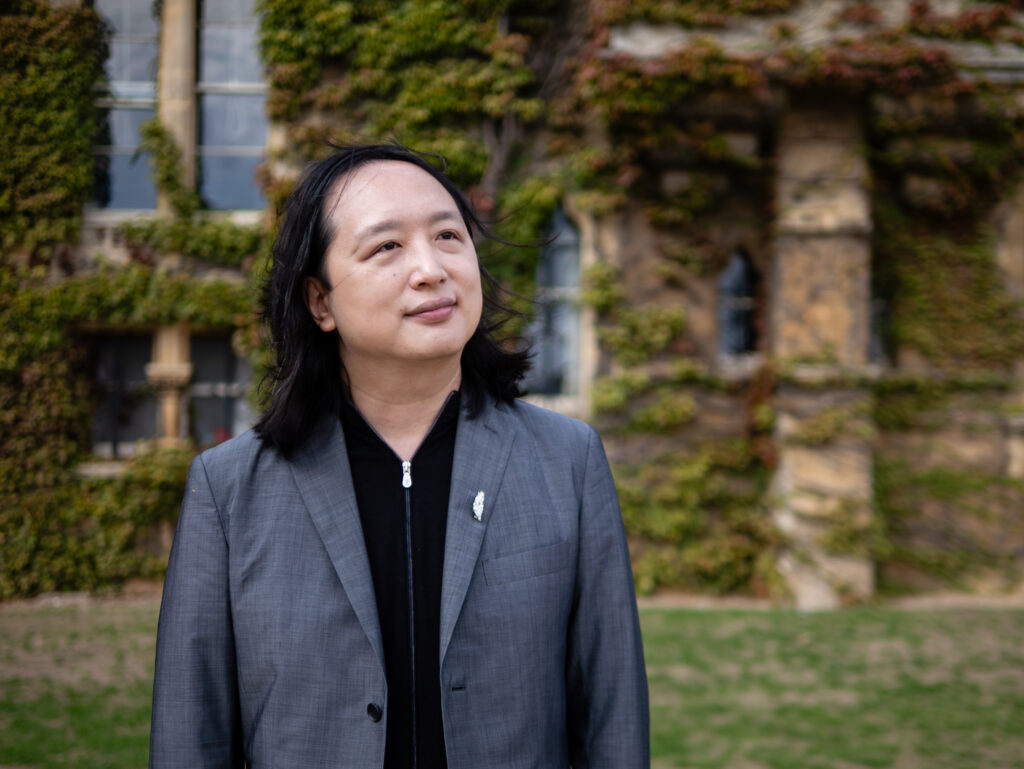
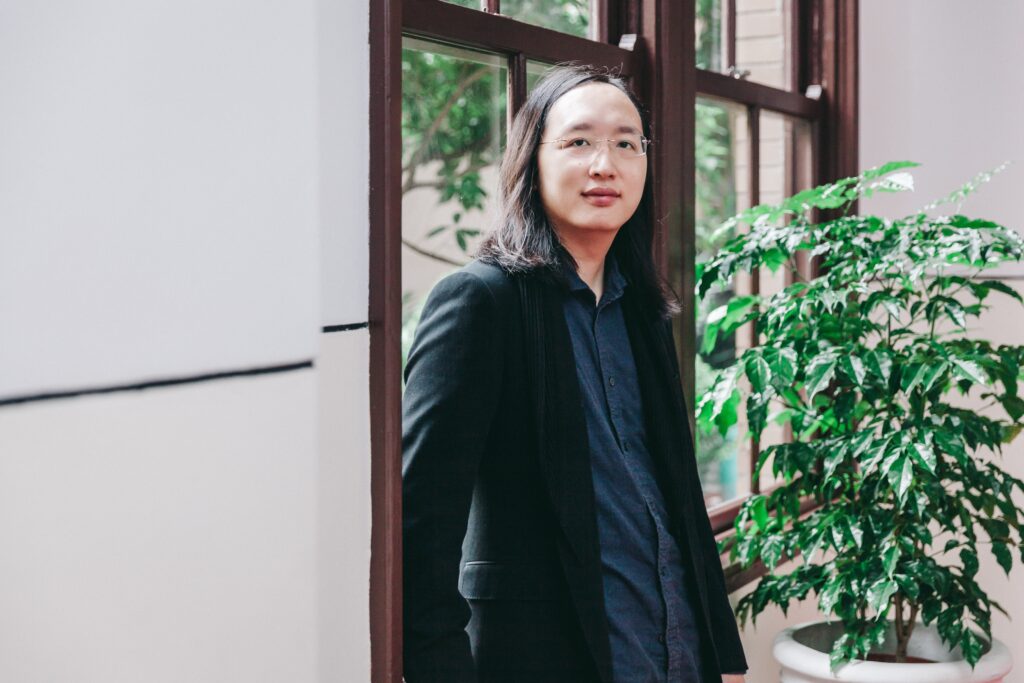
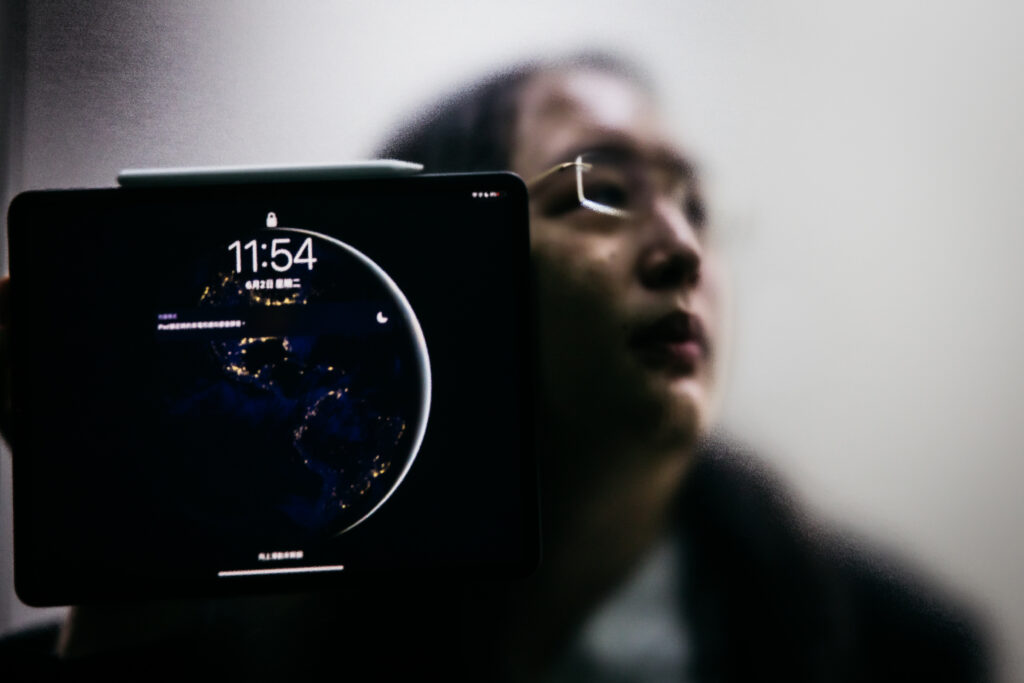





Taiwan as Democratic Testbed
Taiwan occupies a uniquely difficult geopolitical position, as no nation recognises it as a member of the United Nations. In this context, Taiwan must continually show the citizenry that democracy offers real advantages over China’s authoritarian model, even in the face of ongoing threats from Beijing. A constant target of information manipulation and propaganda, Taiwan lives with the challenge of protecting its democracy and maintaining public trust, while keeping institutions responsive and accountable. The integration of digital technologies has been instrumental in revitalising Taiwan’s democracy, enhancing citizen engagement (input) and the efficiency of public service delivery (output).
Plurality in a Conflict Zone
The digital sphere is not a neutral tool, but a contested arena where the stakes are high for democracy and human agency. Tang sees this as a battlefield of malicious AI swarms and a laboratory for new forms of participation.
“Cyberspace is a conflict region, and my work turns that conflict into an energy source for co-creation, showing the world it is time to work on peace in this zone,” she said.
This vision was crystallised in her co-authored book Plurality: The Future of Collaborative Technology and Democracy. “Plurality is about a diffusion of diverse viewpoints. Through technology, we have a way to discover our uncommon ground so that even though we come from different places, there’s a systemic way to co-create policies and norms,” Tang said. By “uncommon ground,” she means those rare points of agreement that people with very different ideological views often don’t realise they share — values that can be uncovered through deep listening and mutual understanding, creating space to move beyond polarisation.
For Tang, Plurality is a peaceful discipline: a way to channel conflict into collaboration, replacing zero-sum battles with shared solutions. Democracy, in this vision, must be “fast, fair and fun:” fast to respond to people’s needs, fair so every voice counts and fun so participation is energising rather than exhausting. As she often quotes the Dalai Lama: “It is under the greatest adversity that there exists the greatest potential for doing good, both for oneself and others.”
Early Brilliance of a Systems Hacker
Born in Taipei in 1981, Tang raced ahead academically, reading classical literature as a preschooler, decoding advanced mathematics before 6 and programming by 8, even before touching a computer. Diagnosed with a congenital heart condition, she turned to Taoist meditation to cultivate calm and resilience, qualities that define her public life.
By 14, Tang found school too slow and left to pursue self-education. By 19, she was already in Silicon Valley founding her own software company. Tang’s reputation quickly grew in the open-source world, as she led the influential Pugs project, which connected different programming languages, and contributed to dozens of widely used tools that remain part of the frontier tech global ecosystem.
Even before entering government, Tang was already a systems hacker and bridge-builder, writing software that linked disparate codes and, more importantly, connecting the communities behind them.
From Protest Square to Platform State
“No democracy is an island,” Tang has often said, “not even Taiwan.” Back home, she helped shape g0v, a leaderless civic-tech collective that built tools for transparency and participation. During the 2014 Sunflower Movement, students occupied parliament over opaque trade talks with China. Amid this crisis of trust, g0v’s infrastructure enabled the public to livestream debates, co-translate content and engage decision-makers in real time.
“It was the moment technology proved it could bring citizens into the same room as lawmakers,” Tang said.
From Sunflower came vTaiwan, a participatory platform that used Polis, an AI-supported tool, to reveal areas of convergence rather than amplify extremes. Tang led the integration of Polis into Taiwan’s democratic experiments, where it became a “broad-listening” space that elevated bridging ideas instead of the loudest voices. Tang was first invited into government as a “reverse mentor” to advise a cabinet minister. Her performance was so effective that she was soon appointed minister without portfolio responsible for digital affairs.
Radical Transparency in Power
As Taiwan’s first digital minister — and the world’s first openly non-binary cabinet minister — Tang retained her activist spirit, bringing grassroots civic-tech values into the state.
Minutes of meetings went online, roadmaps were co-created, and during the pandemic her team co-created “Mask Maps,” open-data apps showing real-time pharmacy stocks. At the same time, they pioneered “humour over rumour” memes and pre-bunking strategies that anticipated falsehoods before they spread. Taiwan avoided lockdowns, kept the death toll low and saw trust surge. “We made sure everyone could see the same facts at the same time,” she said, “so panic didn’t spread faster than the virus.” She also pushed universal connectivity — broadband as a human right — and mobilised hackathons to tackle deepfakes and other urgent threats.
A Good Enough Ancestor
Tang believes the true measure of leadership is not in personal acclaim but in what is handed over to future generations. She often states that her legacy should be that of a “good enough ancestor” — a phrase later becoming the title of her 2024 biopic. Living since childhood with a congenital heart condition, Tang learned early that uncertainty is part of life, yet endurance is possible. That lesson became a metaphor she applies to democracy itself: fragile but alive, threatened yet resilient. Drawing on the ancient Greek root of the word “cyber” — kybernētēs, meaning a steering pilot — Tang describes her role as guiding societies through turbulence while steering collective imagination toward a future where democracy remains transparent, participatory and profoundly human.
Proven, Portable, Global
From open-source prodigy to minister to cyber ambassador, Tang has built a democratic renovation toolkit that is proven and portable. Through her vision, technology becomes a social infrastructure — a path from polarisation to plurality, from mistrust to participation.
Tang’s Taiwan Model for digital democracy, including the vTaiwan deliberation platform and collaborative governance tools, is now shaping democratic practices worldwide.
In Japan, she collaborates with Digital Democracy 2030, a civic programme adapting vTaiwan/Polis methods to local contexts. The Future Team leveraged these approaches to win more than 2.5 per cent of the national vote and enter the Diet, electing Takahiro Anno to the House of Councillors. In the EU, she has contributed to initiatives on cyber resilience and ethical AI governance. In the US, she has advised initiatives such as Engaged California and Project Liberty Institute, which connect citizens and lawmakers on issues from wildfire prevention to social media reform.
Building the “Narrow Corridor” for Safe, Open AI
At the 2025 Paris AI Summit, Tang co-launched Robust Open Online Safety Tools (ROOST) alongside figures from security-minded and open-source camps. The aim: a defence-dominant, decentralised response to synthetic child sexual abuse material, with mid-sized platforms like Bluesky, Roblox and Discord contributing tools to open source. The result, she said, is “a narrow corridor between the security mindset and the open-source mindset,” backed by substantial funding and now a foundation and a model for federating safety without empowering offenders. This initiative exemplifies her broader philosophy: building safety infrastructures that are decentralised, transparent and participatory.
Tang’s north star is constant: she argues for horizontal collective intelligence, assistive systems that amplify human agency, rather than chasing a single vertical super-AI.
A Quiet Optimism
Tang describes herself as a “conservative anarchist”: conservative in preserving shared spaces and anarchist in rejecting top-down coercion. She identifies as post-gender and tells others to use whatever pronouns work for them when referring to her.
Spirituality and optimism infuse Tang’s public service. A dedicated meditator, she cultivates calm as a form of civic care.
“Taoism is how I learned to keep calm, not as religion, but as a survival skill. It became a way to bond across differences.”, she said.
With her bird’s-eye view on AI and governance, Tang urges us to imagine what the next decades of humanity could look like if we preserve human agency in the technological revolution. She believes in unlocking the civic potential of machine learning by involving people directly and ensuring transparency. By nurturing collective participation, Tang envisions a future of augmented collective intelligence, where technology strengthens rather than undermines civic life. She continues to embody her conviction that democracy must be responsive, fair and energising: not an experiment ending, but one just beginning anew.
